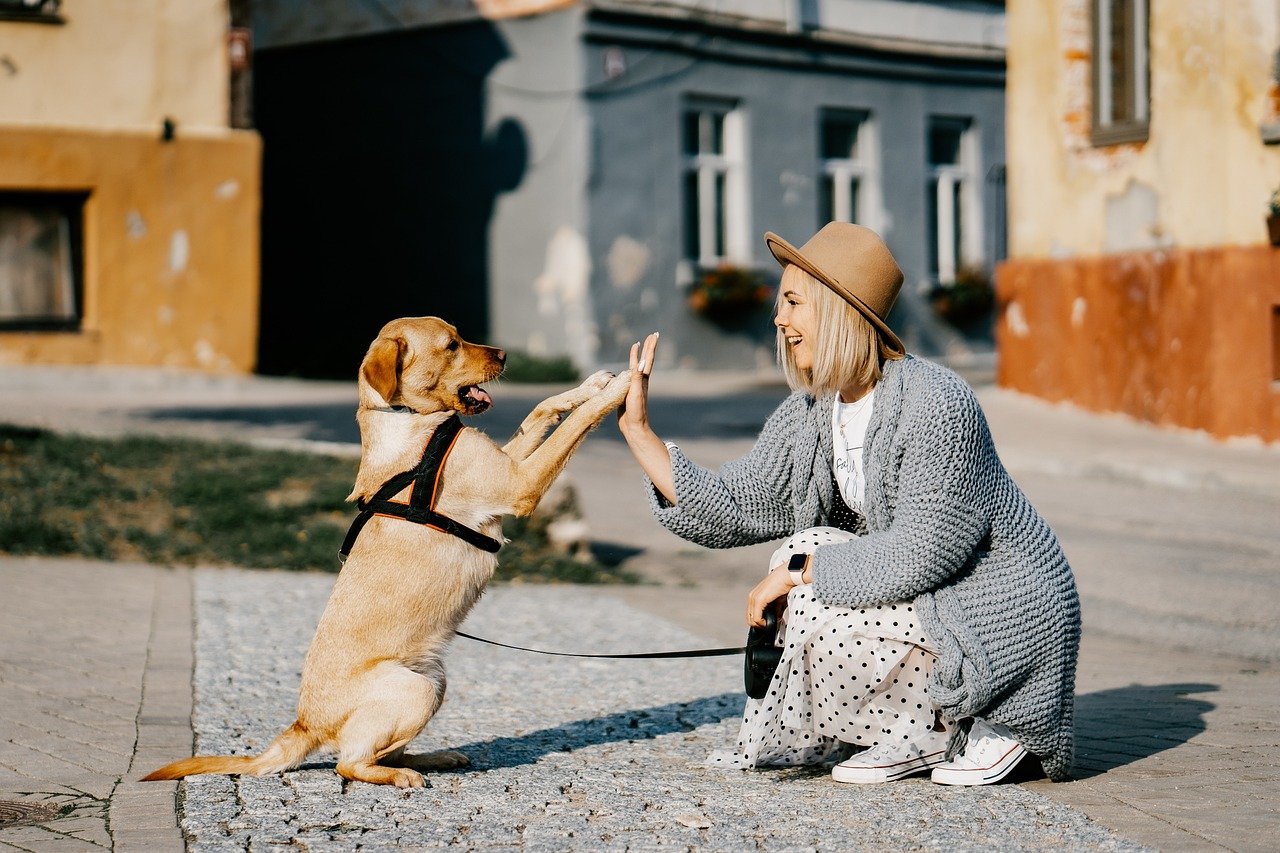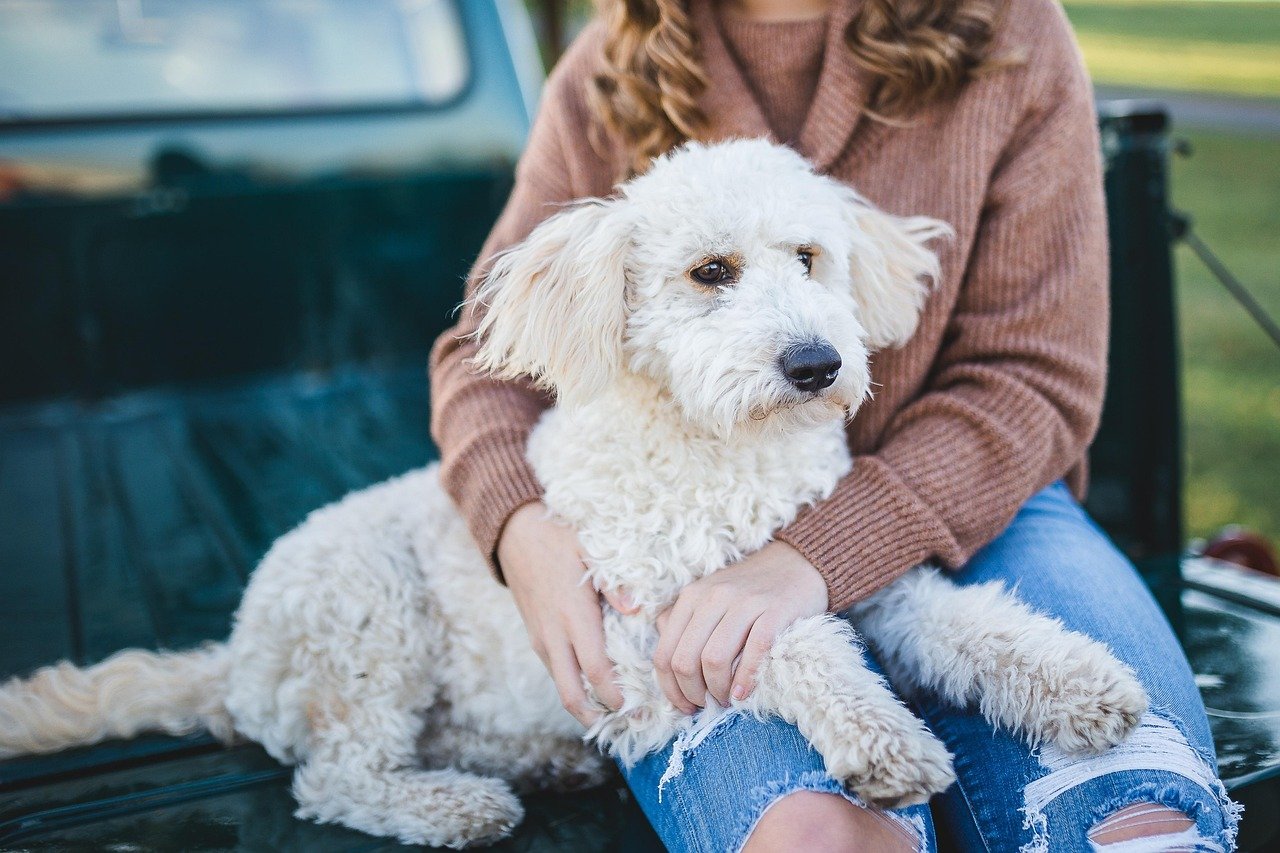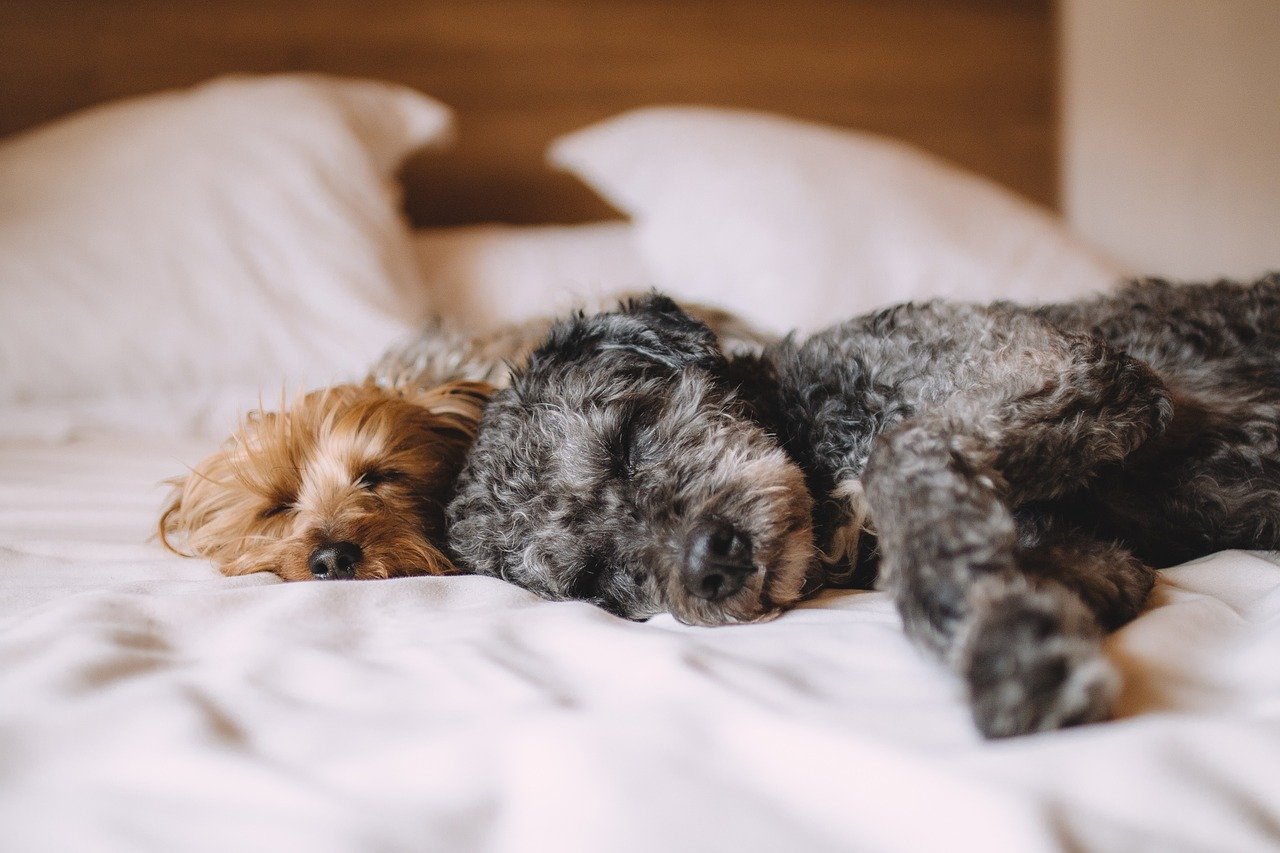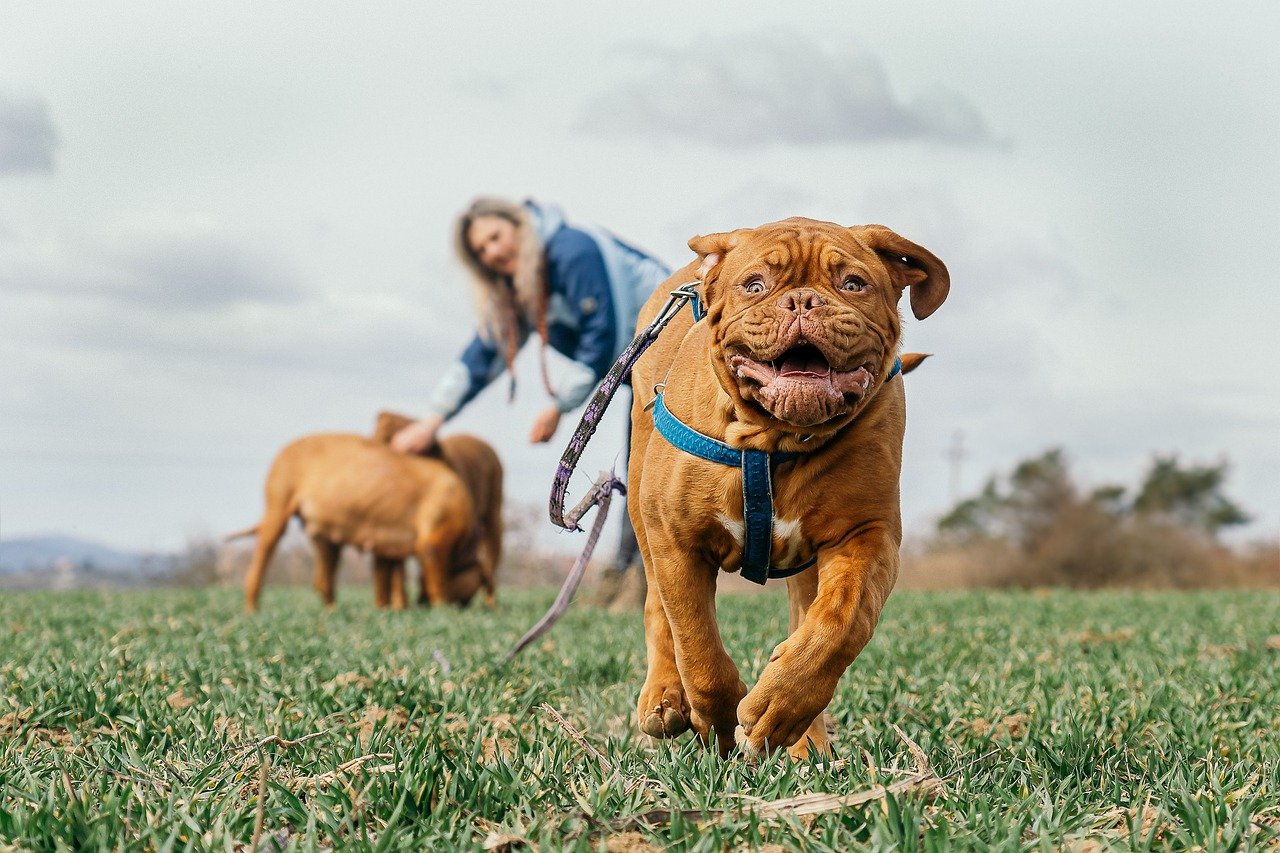Have you ever walked out the door and wondered what your furry friend is feeling? The idea that our dogs might be longing for us—or completely content—can tug at the heartstrings or bring a sigh of relief. Dogs are expressive, emotional beings, and their behavior can reveal more than we might expect about how they feel in our absence. If you’ve ever come home to a wagging tail or a tipped-over trash can, you might have asked yourself, “Do they miss me, or are they just being… well, a dog?” This article will take a deep dive into the unmistakable signs that your dog is missing you—and the surprisingly clear signals that they’re perfectly okay when you’re away. Get ready to see your pup’s behavior in a whole new light.
They Wait by the Door or Window
One of the most classic signs your dog misses you is their habit of waiting faithfully by the door or window. You might notice paw prints on the glass or find your dog stationed at the front door for hours. This behavior is a clear indication that they’re anticipating your return, associating those spots with your arrival. Some dogs even learn the sound of your car and rush to these locations when they hear it. Their patience and unwavering focus can be heartbreaking—it’s as if they’re counting the minutes until they can see you again. This kind of waiting can sometimes be mistaken for boredom, but it’s fueled by a deep bond and longing to be reunited. It’s a touching reminder of just how central you are to your dog’s world.
Excessive Whining or Barking
When dogs miss their people, vocalizing can become their way of coping. If your neighbors report hearing your dog whining or barking after you leave, it’s likely a sign of separation distress. These vocal outbursts aren’t just random noise—they’re a canine cry for comfort and connection. Dogs may howl, whimper, or bark for lengthy periods, especially right after you walk out. While some breeds are more prone to this than others, any dog can develop this behavior if they’re feeling lonely or anxious. It’s important not to scold them for it, as this is their way of expressing missing you rather than being disobedient. Instead, understanding this vocalization as a sign of their affection can help strengthen your bond.
Loss of Appetite
If your pup skips meals or seems uninterested in treats when you’re gone, it’s often a sign they’re feeling your absence. Dogs who miss their owners might ignore their food bowl, even if they’re usually enthusiastic eaters. This loss of appetite usually isn’t about the food itself—it’s emotional. Your presence brings comfort and security, so eating feels less appealing without you. In some cases, dogs may just nibble or leave their favorite snacks untouched until you return. If this happens occasionally and only when you’re away, it’s a strong clue they’re missing you. However, if it becomes a pattern, it’s wise to consult your vet to rule out other health concerns.
Destructive Chewing or Digging
Chewed-up shoes and shredded pillows can be a frustrating but telling sign that your dog is missing you. When left alone, some dogs act out their stress and longing through destructive behaviors. This can mean gnawing on furniture, digging at doors, or tearing apart household items—anything to cope with the anxiety of your absence. While it may seem like mischief, it’s often fueled by emotional turmoil. Dogs who miss their owners are seeking comfort, and chewing releases calming endorphins. If this behavior only happens when you’re away, it’s a clear message that your dog’s heart aches for you. Offering safe chew toys and plenty of exercise can sometimes help ease their distress.
Restlessness and Pacing
A dog that can’t seem to settle when you’re gone is likely struggling with your absence. Restlessness shows up as pacing back and forth, circling the house, or constantly moving from room to room. These dogs are searching for you, unable to relax until you return. This behavior is especially common in breeds that form strong attachments to their humans. If your normally relaxed dog becomes a bundle of nervous energy as soon as you leave, it’s a sure sign they’re missing you. The repetitive nature of pacing is their way of coping with uncertainty and longing, much like how people might fidget when anxious.
Accidents in the House
Even well-trained dogs may have accidents indoors when they’re missing their owner. Stress and sadness can disrupt their usual bathroom habits, leading to unexpected messes. This isn’t a sign of poor training or spite—it’s an emotional response. Dogs may lose control, especially if they’re anxious or upset about your absence. If you notice that accidents only happen when you’re not there, it’s likely linked to their feelings for you. While it’s important to clean up thoroughly and avoid punishment, understanding the emotional root of the problem can help you support your pup through their lonely moments.
Over-the-Top Greetings When You Return

If your dog greets you like you’ve been gone for years—even after just a short trip to the mailbox—it’s a strong sign they missed you. Some dogs jump, spin in circles, or shower you with kisses as soon as you walk in the door. Their excitement can be overwhelming, complete with tail wags, happy howls, and even joyful tears. This enthusiastic welcome isn’t just about routine—it’s a celebration of your return. Dogs who miss their owners often save up all their affection for these moments, making your homecoming the highlight of their day.
Clinginess and Following You Everywhere

When your dog misses you, they might shadow your every move the moment you’re home. This clinginess is their way of making up for lost time and ensuring you don’t disappear again. They might follow you from room to room, sit at your feet, or insist on physical contact. Some dogs become “velcro dogs,” refusing to let you out of their sight. While this behavior can be sweet, it’s also their attempt to feel secure after missing you. If your dog becomes especially attached right after you return, it’s a heartfelt sign of how much your presence means to them.
Depressed or Withdrawn Behavior
Some dogs express missing their owners by withdrawing into themselves. Instead of acting out, they become quiet, subdued, or uninterested in things they usually enjoy. You might notice your dog lying in unusual places, avoiding playtime, or simply appearing sad. Their eyes may look dull, and their tail may stay tucked. This kind of behavior is often mistaken for laziness, but it’s actually a form of canine depression brought on by loneliness. If your dog perks up as soon as you come back, it’s a clear indication that your absence was weighing heavily on their spirit.
Searching for You Around the House
Dogs that miss their humans often go on a little hunt through the house, checking every room in hopes of finding you. They might sniff your usual spots, jump onto your bed, or paw at doors you typically use. This searching isn’t just curiosity—it’s a determined effort to locate the person they love. If your dog spends time looking for you when you’re gone, it’s a touching sign of attachment. Sometimes, they’ll even drag your clothes or shoes around for comfort, surrounding themselves with your scent until you return.
Relaxed Sleeping While You’re Gone

On the flip side, a dog that sprawls out for a nap as soon as you leave is probably just fine with your absence. If your pup settles down in their bed, snores away, or even sleeps in unusual positions, it’s a sign they feel safe and content. Dogs that aren’t missing their owners use the quiet time to catch up on rest, undisturbed by anxiety. This behavior shows confidence and independence—they trust that you’ll return and aren’t worried about being alone. Observing your dog’s sleeping habits can reveal a lot about how they feel when you’re not around.
Playing with Toys or Keeping Busy
Some dogs channel their energy into play when you’re gone, happily engaging with their toys or inventing their own games. If your pup chases balls, chews on squeaky toys, or tosses around their favorite stuffed animal, it’s a sign they’re content and entertained. Dogs that are fine in your absence find ways to keep themselves occupied and stimulated. This playful behavior suggests they’re emotionally balanced and don’t experience distress when left alone. It’s a reassuring sign that your dog enjoys their own company and feels secure in their environment.
Eating and Drinking Normally
A dog that keeps their regular eating and drinking habits while you’re away is likely not bothered by your absence. They approach their food and water bowls with the same enthusiasm as when you’re home, showing no signs of stress or loss of appetite. Consistent eating habits indicate emotional stability and comfort with being alone. If your dog finishes their meals and stays hydrated, you can feel confident that they’re coping well without you. It’s a practical and easy-to-observe sign that your dog is fine during your time apart.
Calm Demeanor and Lack of Anxiety
Dogs that remain calm and relaxed when you leave are showing you they’re okay. If your departure doesn’t trigger barking, pacing, or any signs of distress, it means your dog is secure in your routine. They might simply watch you go, then settle down with a sigh. This lack of anxiety is a positive indicator of independence and emotional health. Some dogs even enjoy the quiet time, appreciating a peaceful nap or a chance to explore without interruption. Their calmness is a testament to the trust and confidence you’ve built together.
Greeting You Casually Upon Return

If your dog greets you with a calm tail wag and a quick sniff, it’s a strong sign they were content while you were gone. Unlike the over-the-top greetings of dogs who miss their owners, these dogs acknowledge your return with relaxed affection. They’re happy to see you, but not desperate for attention. This casual welcome means they trust that you’ll always come back and don’t feel anxious during your absence. It’s a healthy sign of emotional maturity in your dog.
Exploring or Watching Outside
Some dogs enjoy using alone time to observe the world outside. If your dog spends time looking out the window, watching birds or people, or simply exploring the backyard, it’s a sign they’re engaged and curious. This behavior indicates that they’re not fixated on your absence but are instead finding ways to entertain themselves. Dogs who are fine when left alone often use the opportunity to check out new sights and sounds, showing a zest for life even when you’re not around.
Showing Interest in Visitors or Other Pets

A dog that seeks out playtime with other pets or welcomes visitors while you’re gone is likely feeling secure. If your pup interacts with a pet sitter, family member, or neighbor without showing signs of stress, it’s a clear indication they’re okay. Dogs who are comfortable with others in your absence display social confidence and emotional resilience. This willingness to engage with others means they’re not pining for you the whole time, but are able to enjoy company and stimulation from different sources.
Using the Bathroom as Usual
Consistency in bathroom habits is another sign your dog is just fine when you’re away. Dogs that stick to their regular potty schedule, without accidents or signs of distress, are demonstrating emotional balance. This routine shows that your absence doesn’t disrupt their comfort or well-being. It’s a simple but reliable way to gauge how your dog feels when you’re not at home.
Relaxing in Their Favorite Spot

If your dog heads straight to their favorite bed, couch, or sunny patch as soon as you leave, it’s a sign they feel secure and content. Dogs that are fine on their own gravitate to places where they feel comfortable, using alone time to relax or nap. This behavior shows a sense of routine and safety, indicating that your dog is at ease with your departures. It’s a comforting sign that your pup knows you’ll return and doesn’t spend the time worrying.
Engaging in Self-Grooming or Chewing
Dogs that calmly groom themselves or chew on appropriate toys when you’re gone are showing self-soothing habits. Self-grooming is a sign of relaxation and comfort, while chewing on toys releases feel-good endorphins. These behaviors indicate your dog is managing their alone time in a healthy, positive way. Rather than acting out or showing distress, they’re taking care of themselves and staying content until you return.
Jen is a passionate nature lover and ocean conservationist. She has dedicated her life to protecting the environment and preserving the beauty of the natural world. Growing up in a small coastal town, Jen sincerely appreciated the ocean and its inhabitants. She has spent countless hours exploring the shoreline, learning about the creatures that inhabit the waters, and advocating for their protection. Jen is an active member of ocean conservation organizations, and she is committed to educating the public about the importance of conserving wildlife and the natural environment.





